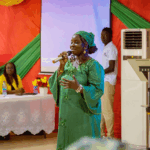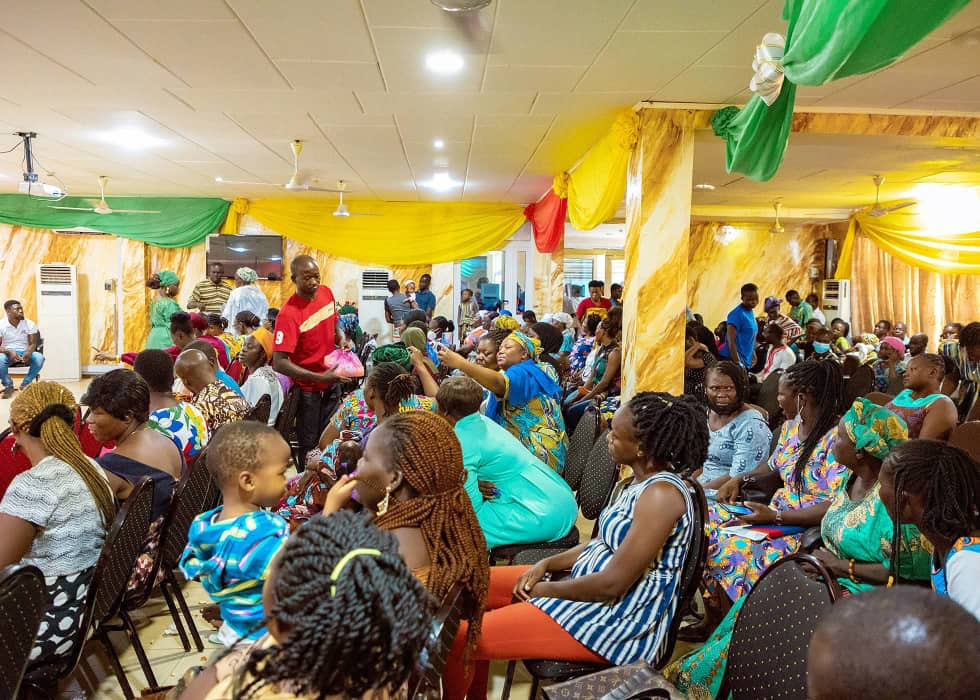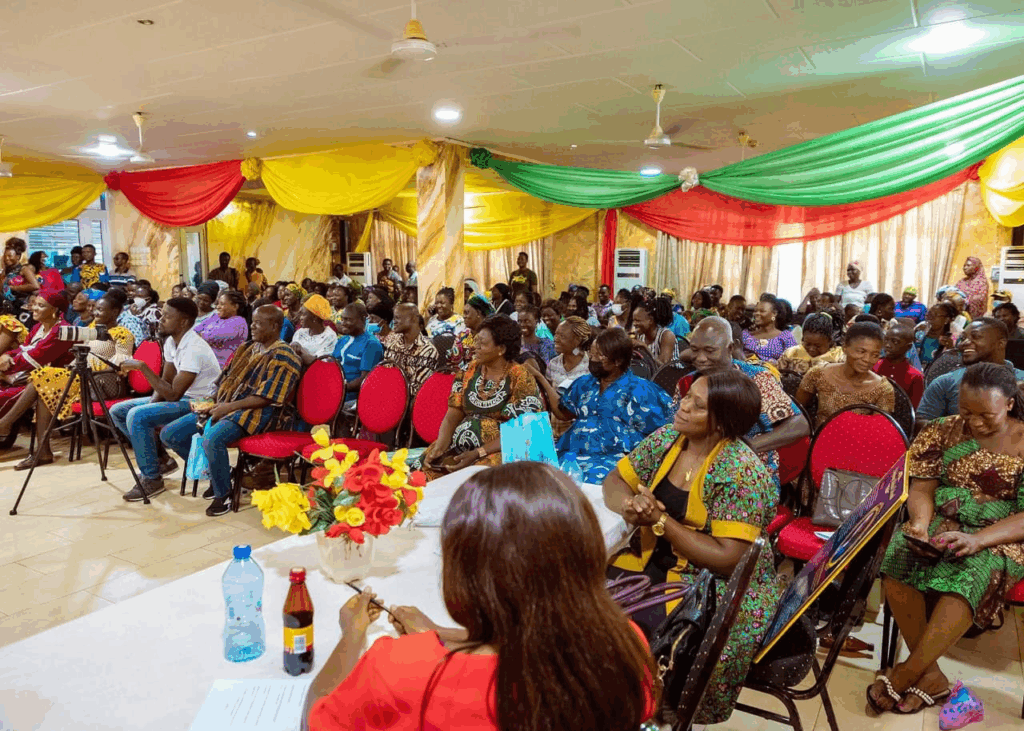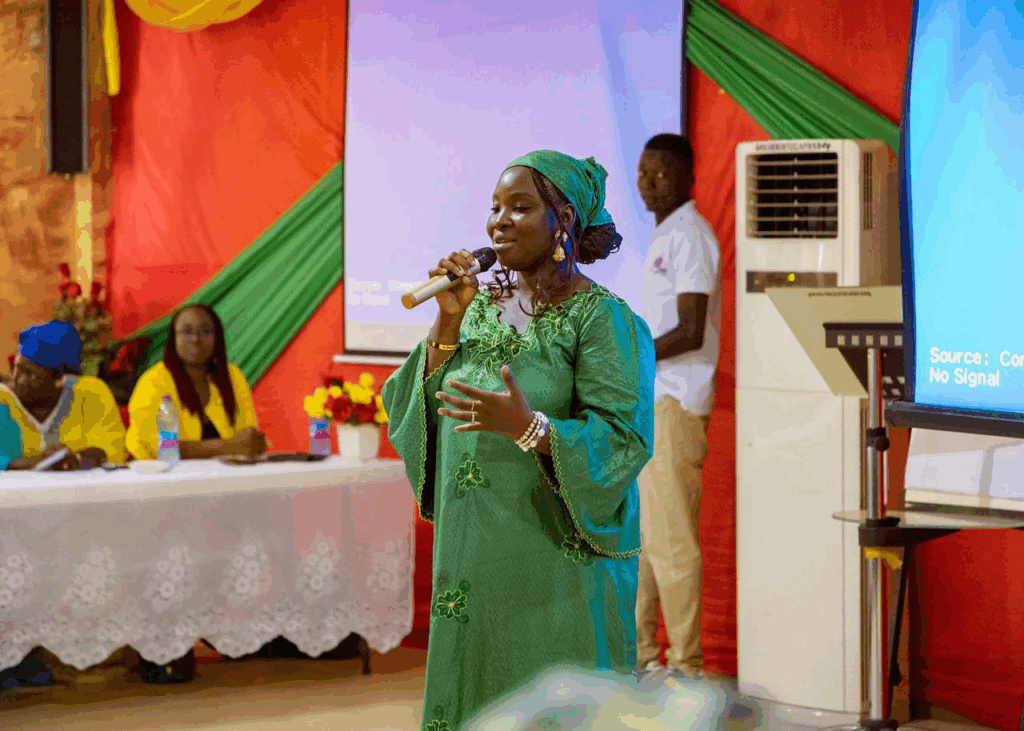
How a Young Woman’s Birthday Wish Sparked a Lifeline for Families in Northern Ghana
When Ms. Katherine K. Millar turned 29, she could have chosen a glamorous getaway as most young women of her age would do. Instead, she chose Bolgatanga, Upper East Region, where stigma and silence often surround children with neurodevelopmental challenges.
Her decision gave birth to the Go North Medical Outreach Programme—a groundbreaking initiative transforming lives across Northern Ghana. In communities across Northern Ghana, the birth of a child with unusual developmental delays is too often met with fear, stigma, and painful misconceptions.
Many children struggling with speech, movement, or social interaction are seen as victims of witchcraft, abandoned by families, or subjected to harmful traditional practices. But a quiet revolution is underway, offering families hope and children a chance to thrive.

From Birthday Celebration to Lifeline for Children
The Go North Medical Outreach Programme was conceived in 2023 by Katherine K. Millar, who made a life-changing decision. Instead of travelling out of the country to Dubai, Europe or other holiday destinations for a lavish celebration, she chose to channel her resources into bringing medical and therapeutic care to children living with neurodevelopmental challenges in Northern Ghana.
Together with her husband, Prof. Mamudu Akudugu, and under the umbrella of the MEEIDIK Smilehub Foundation, Ms. Millar partnered with the Millar Institute for Transdisciplinary and Development Studies (MITDS), Klicks Africa, Mission Paediatrics, and Rise Ghana to launch the outreach. Their goal was simple but profound: to replace myths with knowledge, stigma with compassion, and despair with practical solutions.
A Hidden Crisis
Neurodevelopmental disorders such as Autism Spectrum Disorder (ASD), Attention Deficit Hyperactivity Disorder (ADHD), Cerebral Palsy, Intellectual Disability, and Epilepsy affect thousands of Ghanaian children. According to the Ghana Mental Health Authority (GMHA), more than 20,000 cases were recorded in 2022. While the figures reflect a gradual decline, experts caution that without sustained awareness and intervention, many children risk being left behind.

“Parents often come to us after trying everything else; sometimes even harmful concoctions,” said Dr. Marilyn Marbell Wilson, a neurodevelopmental paediatrician who has been leading the medical team. “This outreach gave families access to proper diagnosis and management plans for the very first time”.
Lives Touched, Stories Changed
Over the period of 2023 and 2024, more than 300 children and their families were screened in Bolgatanga. They ranged from infants as young as eight months to teenagers nearing adulthood. The conditions identified included autism, cerebral palsy, intellectual disability, epilepsy, and speech delays.
The findings in 2024, for example, painted a sobering picture:
- 53 children presented with delayed speech and communication challenges.
- 49 struggled with motor delays and coordination issues.
- 28 exhibited repetitive or restrictive behaviours.
- 12 engaged in challenging behaviours such as aggression or self-harm.
But the outreach went beyond diagnosis. Parents were trained to use everyday strategies at home—from behaviour reinforcement to diet-based interventions. Therapists demonstrated how to create assistive devices using local materials like PVC pipes and sandbags. Nutritionists showed families how affordable foods such as millet, beans, and shea butter could support child development.
For many parents, it was their first moment of relief. “We thought my son’s condition was spiritual. Now I know it’s medical, and I know how to help him,” one mother shared tearfully.

Impact Beyond the Outreach
The Go North Medical Outreach did not end with the event. Several follow-up interventions have already made lasting differences in the community:
- Water Security: A Polytank was provided for the Bolgatanga Special School to ensure reliable access to clean water.
- Improved Learning Environment: Classroom furniture at the Special School was refurbished.
- Sanitation Upgrade: A modern toilet facility was built for the Special School.
- Life-Saving Surgery: One child born without a throat/oesophagus received critical medical treatment.
- Support for Teenagers: A teenage girl diagnosed with Hepatitis C was adopted, treated, and given a phone to aid communication.
- Capacity Building: A young student has been recruited and is currently training to become a Speech Therapist, ensuring continuity of care in the region.
Challenges and the Road Ahead

Despite its success, the outreach exposed critical gaps. Specialised pediatric care remains scarce in Northern Ghana. Many families cannot afford long-term therapies. And although stigma is gradually eroding, cultural beliefs still discourage some from seeking help early.
The medical team called for:
- Structured follow-up systems for continuity of care.
- Community sensitisation to reduce stigma.
- Investment in pediatric neurodevelopmental services at the regional level.
- Integration of awareness campaigns into antenatal care so parents can detect early signs.
A Community Effort
The programme’s achievements were made possible through collaboration. Prof. David Millar and the MITDS team provided vital local support. Mission Paediatrics and Klicks Africa mobilised expertise from Accra. Rise Ghana linked families with caregivers, while the Bolgatanga Regional Hospital lent institutional backing.
A Message of Hope
As the third edition of the Go North Medical Outreach is currently underway in the Upper West Regional Capital, Wa, one message stands out: change is possible. By blending science, compassion, and community action, the initiative has shown that children once dismissed as “cursed” can instead be nurtured, supported, and celebrated.
“Every child deserves a chance to reach their potential,” said Ms. Katherine Millar. “This is only the beginning. Our dream is to expand this work across Northern Ghana so no child is left behind.” For families in Northern Ghana, that dream is already taking shape—one diagnosis, one therapy, and one empowered parent at a time.
Gratitude to the Medical Team
A defining feature of the outreach is the selflessness of the medical team, who offered their expertise pro bono. Specialists travelled from Accra and beyond, dedicating their time without expectation of payment. Their commitment made it possible for families, many of whom could not afford specialist care, to access world-class services for free.

“Without their sacrifice, this would not have been possible,” said Prof. Akudugu. “They gave their time, skills, and hearts.”
A Call to Action: Support from Corporate Ghana
For the Go North Medical Outreach to thrive, it needs more than goodwill. It needs sustainable support. Stakeholders, policymakers, and Corporate Ghana are being called upon to invest in scaling the initiative across Northern Ghana. “If corporate institutions can channel even a fraction of their CSR budgets into this cause, countless children’s lives will be transformed,” – Prof. David Millar